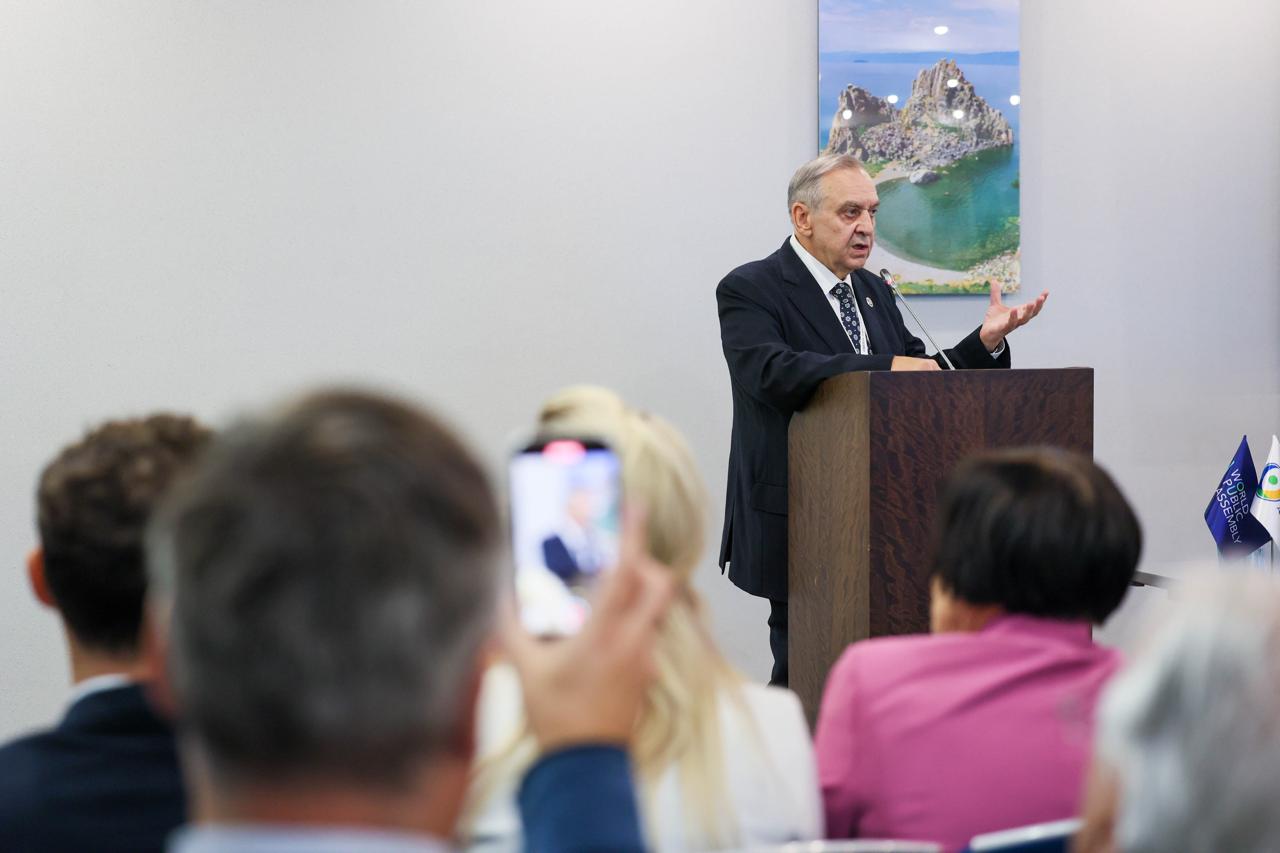The Power of Goodwill: Public Diplomacy as a Path to a New World Order

Moscow, September 2025
One of the central sessions of the First World Public Assembly, “The Phenomenon of Public Diplomacy”, brought together leaders, scholars, and cultural figures from across the globe to reflect on the role of goodwill, trust, and human connection in shaping international relations.
Opening the session, Andrei Belyaninov, Secretary General of the World Peoples Assembly, emphasized that public diplomacy cannot be restricted or blocked because it is rooted in genuine human bonds:
“Public diplomacy is direct communication from person to person, from heart to heart. It is intercultural, scientific, humanitarian and business cooperation built on trust and respect.”
This message resonated throughout the discussion, echoed by participants from diverse regions and professional backgrounds.
-
Sergey Kalashnikov, Deputy of the State Duma of the Russian Federation, highlighted the long history of public diplomacy but urged the need for new content to respond to modern challenges.
-
Georgy Muradov, Deputy Chairman of the Council of Ministers of the Republic of Crimea, pointed to the importance of preparing leaders for a polycentric world: “A new world is coming. It will be quite different.”
-
Sudhir Pal Sabharwal, Chairman of the India-Russia Foundation, and Javed Abid Jafferji, President of the Lions Club International Charitable Foundation (India), stressed that true diplomacy begins with ordinary people and authentic friendships beyond formal treaties.
-
Ekaterina Torubarova, Head of Public Diplomacy at Rossotrudnichestvo, reminded participants: “People will not stop communicating. The desire of nations to interact is unstoppable.”
-
Stephanus Surio Susilo, Chairman of the Indonesian-Russian Friendship Society, called public diplomacy “the best way to ensure peace and friendly relations.”
-
Kim Song Myung, Director of the Russian Cultural and Educational Center Pushkin House (Republic of Korea), and Jean-Claude Guillemot (France) stressed the role of culture and education as powerful bridges of understanding.
-
From Africa, Blaise Esinialanga (DRC) summed up the essence: “Culture builds bridges, not borders.”
Speakers agreed that in today’s world, where political and economic disputes often create divisions, culture and personal goodwill remain unifying forces. The panel concluded that public diplomacy is the diplomacy of hearts — fostering peace through cultural exchange, education, and direct people-to-people communication.
The session demonstrated that public diplomacy, deeply rooted in mutual respect and human connection, is set to play a decisive role in the formation of a new, multipolar, and more cooperative global order.
